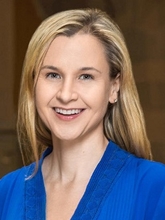JOINT AMERICAN POLITICS & PUBLIC POLICY / ECONOMIC HISTORY WORKSHOP
Abstract: We show that the military’s role in the American political economy was quantitatively important in the 20th century. Specifically, we show that defense spending, during both war and peace, was an important determinant of labor market and electoral outcomes. For example, we show that it was the industrial mobilization during World War II that consolidated union density, which had faltered after 1937. The Cold War, in turn, maintained a high level of labor demand, increasing wages and employment of working-class Americans while keeping large defense contractors tightly monitored by Congress. On the labor-supply side, the Cold War military draft also contributed to labor-market tightness. Finally, we show that the military expenditures of the Cold War kept together a blue-collar political coalition of unions and hawkish Democrats.
Ilyana Kuziemko is the Theodore A. Wells ’29 Professor of Economics, co-director of the Griswold Center for Economic Policy Studies, and co-director of the Princeton Program in Public Finance at Princeton University. Kuziemko re-joined the Princeton faculty in 2014, after teaching at Columbia Business School from 2012-14, where she was the David W. Zalaznick Associate Professor of Business. From 2009-10, Kuziemko served as assistant secretary for economic policy at the U.S. Department of the Treasury, where she worked primarily on the development and early implementation of the Affordable Care Act. Her research interests are in the areas of public finance, political economy and labor economics, with focuses on U.S. economic inequality and in particular its interaction with political and labor-market institutions. She also is a fellow of the Econometric Society and a research associate at the National Bureau of Economic Research.
This workshop is being sponsored jointly between the American Politics & Public Policy Workshop at ISPS and the Economic History Workshop at the Yale Department of Economics.
Open to the Yale community.
